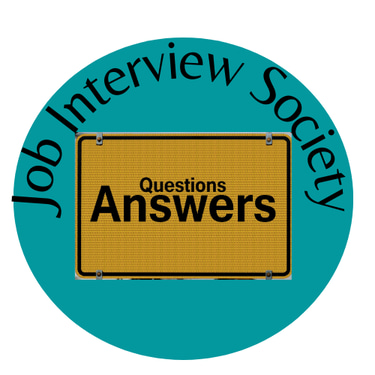Building a Rejection Recovery Plan
Learn how to effectively build a rejection recovery plan to help you bounce back and thrive. Discover strategies for overcoming rejection and enhancing your resilience.
HANDLING REJECTION
2/21/20258 min read


Understanding Job Interview Rejections
Job interview rejections are a common and often disheartening aspect of the job search process. While each rejection can feel personal and discouraging, understanding the underlying reasons can help candidates contextualize these experiences and frame them as opportunities for growth. Common reasons for interview rejections include a lack of relevant experience, insufficient skills, or a poor cultural fit. Employers may also be influenced by the strong competition inherent in any job market, where many qualified candidates vie for the same position.
The emotional impact of rejection can be significant; candidates may experience feelings of disappointment, inadequacy, or self-doubt. This emotional response is a natural reaction to the effort and hope invested in the job application and interview process. It is essential to acknowledge these feelings but also to recognize that rejection does not define one’s professional worth. Instead, viewing each rejection as a stepping stone can lead to resilience and personal development. Many successful professionals have encountered such setbacks throughout their careers.
For instance, renowned entrepreneur J.K. Rowling faced numerous rejections before finding a publisher for her Harry Potter series—a testament to persistence in the face of repeated setbacks. Other professionals have equally shared their tales of rejection turning into fruitful learning experiences. Each rejection offers the opportunity to reflect on weaknesses in interviewing skills or gaps in qualifications, subsequently serving as critical feedback for future applications. This mindset shift—from seeing rejection as a defeat to interpreting it as a learning opportunity—can empower job seekers to continue striving toward their career goals.
The Importance of a Recovery Plan
Facing rejection after a job interview can be an emotionally challenging experience, and it is not uncommon for individuals to feel disheartened or discouraged. This underscores the necessity of establishing a structured recovery plan to navigate such setbacks effectively. A well-considered recovery strategy serves as a vital tool for job seekers, enabling them to recover from disappointment and sustain their motivation throughout the job search process.
Having a recovery plan in place fosters resilience, allowing individuals to maintain focus on their career objectives. It helps in creating a safe space to acknowledge feelings of disappointment while shifting the emphasis towards regaining confidence and perspective. When job seekers adopt a structured approach to handling rejection, they are better equipped to reflect on their interview experiences critically. This reflection enables them to identify areas for improvement, hence transforming what could be a demoralizing experience into a chance for personal growth.
Moreover, a recovery plan encourages job seekers to engage in positive self-talk and reinforces a growth mindset. By setting clear and achievable goals within the recovery framework, individuals can visualize their progress and celebrate small victories. This methodical approach not only enhances personal motivation but also amplifies the drive to succeed in forthcoming interviews.
Furthermore, the social aspect of a recovery plan should not be overlooked. Engaging with peers or professional networks allows job seekers to share experiences, offering mutual support that can alleviate the isolating feelings often associated with rejection. This interconnectedness can provide additional insights and encouragement, which are invaluable when striving for career advancement.
Ultimately, a structured recovery plan is essential in transforming the agony of rejection into an opportunity for growth, ultimately steering job seekers toward the successful outcome they seek.
Assessing Your Emotional Response
Experiencing rejection during a job interview can evoke a range of emotional responses. Common feelings include disappointment, anger, and self-doubt, each of which can significantly impact an individual’s mental state. Recognizing these emotions is essential in building a rejection recovery plan. Acknowledging what you are feeling can facilitate emotional intelligence, enabling you to respond appropriately to similar situations in the future.
Disappointment often arises when expectations are not met. It is important to give yourself permission to feel this disappointment without judgment. Validating your feelings allows for a more constructive processing of events. Practicing self-compassion is crucial during this phase. Rather than criticizing yourself for how you feel, try to treat yourself as you would a friend facing a similar situation. This compassionate approach can be a key factor in overcoming setbacks.
Anger may also surface after a rejection, particularly if the interview process seemed unfair or if you felt inadequately represented. Instead of suppressing this anger, consider channeling it into motivation. Reflect on factors surrounding the rejection and identify any steps that could prepare you for future interviews. Utilizing anger as a productive response can empower you, turning a negative experience into an opportunity for growth.
Additionally, self-doubt is a common reaction, often leading to a critical inner dialogue that diminishes confidence. Combatting self-doubt involves recognizing negative thought patterns and reframing them with a more positive perspective. One effective strategy is to list your achievements and strengths, allowing a more balanced view of yourself. Accepting and assessing these emotional responses is a vital initial step in the recovery process, setting the foundation for resilience in the face of job search challenges.
Reviewing and Learning from the Experience
Receiving a job rejection can be disheartening, but it also presents a valuable opportunity for personal and professional growth. Engaging in a thorough reflection process after an interview rejection can prove beneficial. By analyzing the experience critically, candidates can uncover insights that may enhance their future job interviewing endeavors.
One of the first steps in this reflective process is to seek feedback, if possible. After receiving a rejection, individuals should not hesitate to reach out to their interviewers or recruiters for constructive criticism. Questions about areas of improvement, aspects where the candidate excelled, and skills that may have been lacking can shed light on specific steps to take moving forward. Understanding these elements can create a clear roadmap for personal development.
Additionally, individuals should take the time to evaluate their own performance during the interview. Reviewing answers to questions asked, body language exhibited, and overall preparedness can reveal patterns or shortcomings that may need addressing. A self-assessment should be candid, focusing on both strengths and weaknesses that became apparent in the interview context.
Furthermore, maintaining a positive perspective on rejection is crucial. Instead of viewing a rejection as a definitive end, it should be seen as a stepping stone toward improvement. Emphasizing the lessons learned can foster resilience and motivate individuals to apply new strategies during future interviews. Setting specific, actionable goals based on feedback can also drive progress. This may involve honing particular skills, such as communication or technical expertise, and actively seeking opportunities for practice.
Ultimately, transforming each rejection into a constructive learning experience is essential for long-term success in the job search. By thoughtfully reviewing and learning from the experience, candidates can emerge better equipped for future opportunities and increase their chances of securing their desired position.
Setting New Goals and Positive Actions
Receiving a job rejection can often feel disheartening, but it can also serve as a pivotal moment for personal and professional growth. Setting new, realistic goals following an unsuccessful interview is essential for fostering resilience and motivation. By taking a proactive approach, individuals can channel their energy into constructive actions that will advance their job search efforts and career development.
First, it is vital to reflect on the feedback received during the interview process. This can help identify areas for improvement. From here, individuals can establish specific, measurable, achievable, relevant, and time-bound (SMART) goals. For instance, one might aim to apply for a certain number of jobs each week, or to improve interviewing skills through mock interviews or professional coaching sessions. By doing so, individuals can regain a sense of control and direction in their job search journey.
Networking plays an instrumental role in broadening one's job search horizons. Leveraging professional connections can open doors to new opportunities that may not be widely advertised. Attending industry-related events, joining professional groups, or utilizing platforms like LinkedIn can provide valuable networking experiences. Engaging with others in similar fields can lead to mentorship opportunities and insights into job openings that align with one’s skill set and aspirations.
Furthermore, furthering one’s skills through targeted courses or workshops can significantly enhance marketability. Enrolling in relevant training programs, either online or in person, demonstrates a commitment to continuous learning. This can also build confidence in one’s capabilities, making candidates more appealing to potential employers. Emphasizing growth and skill development can transform rejection into a motivating force that shapes a proactive job search strategy.
Ultimately, maintaining a positive mindset amidst setbacks is crucial. By establishing clear goals and taking intentional actions, individuals can reinforce their determination and resilience in the face of rejection. With time and effort focused on productive changes, the job search can evolve into a fulfilling journey that leads to meaningful opportunities.
Building a Support System
During the job search process, particularly after facing rejection, establishing a robust support system can serve as a vital component for emotional resilience and practical guidance. A strong support network not only provides encouragement but also fosters a sense of community among those who may be experiencing similar challenges. It is essential to connect with mentors, peers, and organizations that can offer emotional and strategic support during this sometimes daunting journey.
Mentorship plays a pivotal role in the recovery process. Engaging with mentors who have navigated job searches and acceptance can provide invaluable insight, reinforcing confidence and providing tailored advice. These seasoned professionals can help illuminate the path forward, offering constructive feedback on job applications and interview techniques that have proven successful in the past. Their lived experiences can not only act as a source of inspiration but also as a practical guide in overcoming setbacks.
Additionally, connecting with peers in similar situations can foster camaraderie and shared learning. Participating in job clubs or support groups often allows individuals to share their experiences, offer advice, and provide emotional backing. These interactions can help to normalize feelings of disappointment and teach coping strategies. The empathy derived from such settings can create a safe space for open communication about one's challenges, which is key to emotional recovery.
Utilizing online platforms for networking, such as professional forums or local meet-up groups, can significantly expand one’s support network. Furthermore, maintaining transparent conversations with friends and family about job search struggles can enhance understanding and support from loved ones. Collectively, these elements contribute to a nurturing environment, empowering individuals to navigate the ups and downs of their job search with resilience and hope.
Embracing Resilience for Future Interviews
Resilience plays a crucial role in navigating the often challenging landscape of job interviews. The ability to bounce back from rejection not only enhances your job search experience but also lays the foundation for personal and professional growth. Developing a thick skin serves as an asset in the unpredictable journey of seeking employment, enabling individuals to manage the emotional toll of the process and maintain motivation amidst setbacks.
To cultivate resilience, it is beneficial to engage in specific techniques and exercises. One effective method is visualization. By taking a few moments before your interview to imagine yourself confidently answering questions and receiving positive feedback, you can create a mental image that fosters confidence and reduces anxiety. This practice hinges on the principle that the mind cannot differentiate between imagined and real experiences, thereby enhancing performance during actual interviews.
Another impactful strategy is the use of positive affirmations. These statements, such as “I am capable and deserving of my ideal job,” can help reframe negative thoughts and reinforce a strong self-image. Regularly repeating affirmations can slowly shift your mindset, encouraging a more positive outlook towards repetitive interview processes. Additionally, journaling about your feelings and experiences throughout the job search can provide valuable insights, allowing you to track progress, acknowledge your emotional responses, and reflect on the lessons learned from each rejection.
Finally, maintaining motivation is vital. Establishing small, achievable goals, like researching a company of interest or practicing interview questions with a friend, can provide tangible steps forward. Surrounding oneself with supportive networks—be it friends, family, or professional groups—can also impart a sense of community, making the process less isolating. Embracing these practices fosters resilience, empowering you to approach future interviews with renewed strength and optimism.
